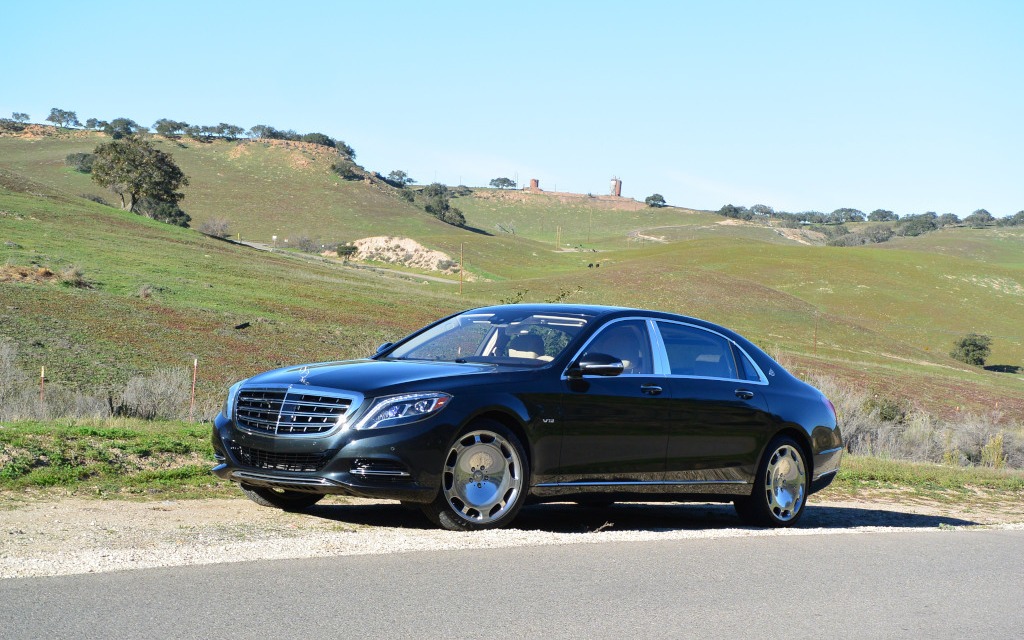Mercedes-Maybach S600: Change In Strategy

A lot of people were taken by surprise when Mercedes announced the return of Maybach, the Stuttgart-based brand’s swankiest label. That’s because most of us thought Maybach was dead and buried following a catastrophic introduction. The brand was launched amid much pomp and circumstance at the 1997 Tokyo Auto Show. Its aim was to challenge arch rival BMW, which had just acquired Rolls Royce. Plus, Audi had taken over Bentley, another prestigious British label. So, that’s what prompted the resurrection of Maybach, an exclusive brand that was well known in Germany in its heyday and acquired by Mercedes-Benz in 1961.
The Maybach revival belly-flopped for three main reasons. First, nobody outside of Germany knew the Maybach name. Second, the luxury vehicle was essentially an S-Class in fancy clothes. And finally, it cost as much as a Rolls, but didn’t come with the same legendary aura. Sales of the Maybach 57 (regular) and 62 (stretch) gradually trickled out and production was halted in 2011. Mercedes-Benz has however clung to the idea of offering a more prestigious car—though it’s a little funny when you consider that Mercedes is already considered a prestige brand. In the end, they decided to diversify the S-Class, which will now be available in three variants: regular cars (if you can call them that), sportier Mercedes-AMG versions and the extra-luxurious and prestigious Mercedes-Maybach S500 and S600.
Read also
More than just a luxury package
While the first-run Maybachs were partially derived from S-Class sedans, they were still different enough to warrant hefty price tags. As for this round, it would be false to believe that Mercedes just added a few gadgets and the Maybach name. The differences are significant, including an exclusive body, which is similar to that of the “regular” S-Class but has modified panels, different-length rear doors, a total of 220 mm of additional length and roughly the same increase for the wheelbase as well (compared to the stretched wheelbase S-Class). All this translates into a more distinguished appearance and extra room for rear passengers, allowing them to be chauffeured around in a more luxurious environment. Like any exclusive vehicle, it comes with serious soundproofing. The vehicle’s body was carefully designed to reduce drag and noise levels. Since 2013, Mercedes-Benz’s Sindelfingen facility has featured an aero-acoustic wind tunnel, enabling the automaker to carefully examine any seams or gaps in the body and eliminate noise caused by air flow. Their engineers have come up with countless tricks to keep noise to a minimum.
Luxurious, eh?
As you’d expect in a car designed for a chauffeur in front and passengers in back, the rear seats are independent and can be adjusted in various directions. There’s even adjustable leg support. Passengers are separated by a large console and even a retractable, ultra-light alloy work table. Like on the previous Maybach models, the console houses an electric cooler and a special rack for your champagne flutes. Obviously, the materials are superb and the seats are impeccably stitched. But since not all Maybachs will be driven by chauffeurs, the driving position is also excellent with multiple settings for both the driver and passenger seats and for the steering wheel. The dashboard layout is the same as on the S-Class and includes a very big display. During my drive, I tried my hand with the system and got the hang of it easily. The screens behind the front seatbacks allow passengers to control the A/C, music and several other vehicle systems. Overall, the new generation Maybach is almost as luxurious as previous versions but much more affordable (if you consider $200,000 affordable). Before I forget, all Maybach models come with a Sennheiser sound system. Optionally, there’s the Burmester 3D surround sound system with 24 speakers and a 1,540-watt amplifier.
Great day tripper
Super luxury cars often focus so much on comfort that they fall short when it comes to handling. Fortunately, this is not the case with this Benz. Most of the technical specs are the same as on the S-Class models, including a plethora of safety systems. The models we tested in California were Maybach S600s equipped with a 6 litre V12 that delivers 523 horsepower and 612 lbs.-ft. of torque. Paired with a seven-speed automatic transmission, these ponies blast the vehicle from 0-100 km/h in just over 5 seconds. A second version will be offered at a later date, a S500 paired with a 4.7 litre V8 that produces 455 horsepower and a nine-speed automatic transmission. According to the manufacturer, the S600’s fuel consumption is 11.7 L/100 km, while the S500’s is 8.9 L/100 km.
With all that, no one is going to complain about its performance. Our test drive was a two-part affair. First I was driven more than 200 kilometres by a chauffeur wearing while gloves (indeed!). I used the time to relax, listen to the satellite radio and tinker with the massage functions. There’s a special control that allows you to slide the front passenger seat forward so that you can stretch out—gotta love it!
The second part of the test drive involved taking the S600 for some laps around a 30 kilometre circuit of winding secondary roads. I was really impressed with the smoothness of the V12 and its immediate acceleration. Despite the size of the sedan, you don’t feel like you’re driving a big vehicle. Another thing that surprised me was the short turning radius. I did a few 180s for the photo shoot and was shocked at how little room I needed. Naturally, the suspension comes with Comfort and Sport modes. They’re very different from one another, but neither results in discomfort.
In short, while some people may be surprised that the Maybach models are back, the decision is not as crazy as it seems. They’ve gone about it intelligently and more Mercedes-Maybach models can be expected in the very near future.









